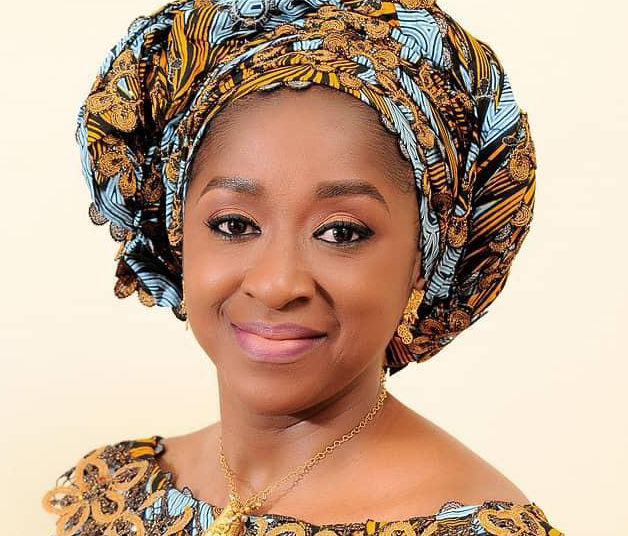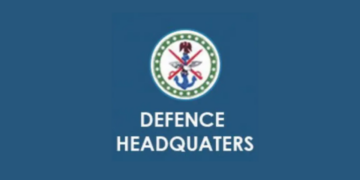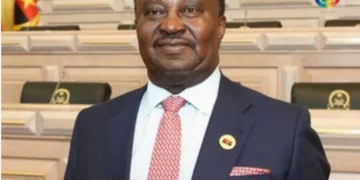As part of activities to commemorate the Open Government Partnership Global week, Kaduna State Government launched the Community Development Charter. What is it all about?
The Community Development Charter (CDC) is a written document containing the development needs of a community listed in the order of communal priority, as drawn up by all groups within the community. It’s a tool for citizens-state engagement and participation as it contains the representative needs of the community, gathered and compiled in an inclusive and participatory manner, to aid our budgeting process, to ensure that our budgeting process speaks to the communities’ needs.
Did your ministry conduct some kind of survey before drawing up this priority needs of communities?
Yes, we did. Before the charter was developed, the civil societies and donor parties did community mapping to identify community gatekeepers and influencers, to get their buy-in into the process. Afterwards, community sensitisation was carried out to enable the communities know how to prioritise their projects. So, there was full community participation.
Are you sure that this mapping is broad and wide enough for effective participation, because it’s like you concentrated on sample focal groups?
When we go into the communities, we actually speak to the community leaders, influencers, traditional leaders, religious leaders and the leaders within the communities; the Imams, the pastors etc, just to get everybody involved. These are the leaders of communities, those that really have the ears of the community. We usually sit with them and ask what the communities’ priorities are. What are their needs and how do they think the needs can be achieved?
In 2018, Kaduna State Government was the first subnational to sign onto the Open Government Partnership initiative. Four years after, how has the journey been and what are the key takeaways and achievements?
There is a new Action Plan for Kaduna state 2021 to 2023. We are done with the 2018 to 2020 Action Plan. Now, we have sat down and developed another Action Plan for 2021 to 2023 with five thematic areas. It addresses open budget, which is really to ensure that our budget speaks to people’s need; that the budget is transparent, and it addresses community needs. We also have the open contracting which means that the Kaduna State Public Procurement Agency (KADPPA’s) contracting process, procurement processes are transparent.
Now we have gone into the e-procurement model in Kaduna state, whereby our contracts are published for the public to see. We advertise all these contracts even before we award them. So, that helps. Citizens engagement is where we do a lot of back and forth with the citizens. Our Eyes and Ears project also falls in here, the citizens hold us accountable for what the state is doing. We have strengthened the social protection system in Kaduna state to ensure that our social registers are ready for anyone coming in with an intervention in the state to improve the poverty indices and service delivery in education and health services.
What is this Eyes and Ears project all about and how has it impacted on transparency in government?
The Eyes and Ears is a homegrown initiative. And it is one of the budget performance tools that we use to track performance of MDA projects across the state. It provides evidence-based feedback to policy makers, to track budget implementation processes. The Eyes and Ears project has the citizens’ and government component.
The citizens’ component is made up of citizen feedback App, a toll-free line and there is also ‘Gani ya kori ji,’ which is an Hausa programme on radio, where different heads of agencies speak to the people about their mandates and what they are doing in various communities. People ask questions on that programme about projects.
The Eyes and Ears App helps us to monitor our projects across various locations. With the size of Kaduna state, it is very difficult, very time consuming and very expensive for us to sit here in the capital and send our people to the 23 local governments to monitor the projects. So, instead, we find volunteers in the various communities that will talk to us on these project and the App is the platform for it. All you need do is register on it, take pictures of the project and then report on it. All the projects that we have in Kaduna state are uploaded onto the App. In your community, within a certain radius, from where you are, the App shows you the projects that are available in that location. So, you can only report on projects that are around a certain radius of your location.
We let you know the details of the project, who the contractor is, what the project is all about, when it was awarded, when it was supposed to be completed, a lot of information around the achievables of that project are online. So, you just provide us with your observations, like whether the contractor is on site, the stage at which the project is, the quality of the project and so on. And that helps us in the monitoring of these projects.
Then we have a toll free line 080001235444, where you can just call, introduce yourself, let us know where you are calling from and the project that you are reporting on and then we get our guys to check on that project and what you are reporting on and then we get back to you.
Has there been adequate feedback on the Eyes and Ears App?
We are happy with the feedback so far, we get a lot of reports, though the numbers are not up to where we want them to be. Civil Society Organisations go to various communities and engage the people and inform them. At our own end, we ensure that we engage everybody that has brought a report to us, we make sure that we give every person a feedback on what government has done about it. We encourage people to also disseminate when they get feedback from government on it. So, it is work in progress and we are moving on.
We’ve introduced a WhatsApp line also, aside the toll-free line, just for people to also send information. For people that don’t have the Android phones to access the WhatsApp group, they can just call or send a text message. We recently introduced the volunteer Eyes and Ears WhatsApp group, with members from the 23 local governments. We are using volunteers across the various MDAs who have volunteered to do such work. We have trained them and we will continue to train them. We’ve given them a simple template on how to report on these projects. All they need do is to list the name of the project, where they are reporting from, the quality of the project, the extent of the execution of the project and send a few pictures. That has also helped us in improving the monitoring process.
Can you give a specific instance where this reporting has helped to salvage a particular project?
O yes. Kaduna state won an award on the Global Open Partnership platform last year, when a lady reported on a primary healthcare project in her location. The contract had been awarded but the project had been abandoned. So she reported it on the Eyes and Ears App and it came to us and we directed the Primary Healthcare Board to check the project. They realised that the contractor has absconded from the project and we got him back to site. The project was completed and we were commended for it. So, the lady tweeted about it and the Global Open Partnership picked it up and it was one of the projects that was highlighted during its programme last year.
How has the Open Government Partnership impacted on health and education sectors, in terms of mortality rate and enrolment figures in schools and overall scores in external exams?
This administration continues to prioritise education and health. Every year, education and health take about 40% of our budget size. In 2022, the spendings for education was about N68.4 billion which is about 29% of the total budget size of the state. You will also recalled that we inherited about 4,200 primary schools across the state, which were in very bad conditions with pupils learning on the floor. Major steps were taken to improve enrolment by investing massively in infrastructure, personnel and incentives in the education sector.
When the administration assumed office, the first thing we saw was that even the teachers in the schools didn’t have the capacity to teach the learners. There was a lot of noise when incompetent teachers were retrenched. But I’m happy to say that we have engaged qualified teachers to teach the students and our success rate has really improved across various exams. The enrolment ratios have continued to improve; there has been an increase in the pre-primary enrolment to about 74.4%; primary enrolment, 92.4%. Junior secondary school enrolment, by gender, boys enrolment is 45%, girls 55%; senior secondary school enrolment by gender boys 59%, girls 41%.
These figures are from our annual school census that was done in 2020/2021. In the area of health, the 2022 budget has increased this year to N25.4 billion, which is 15% of the total budget size. So, the massive investment in healthcare and healthcare reforms since the coming of this administration has significantly impacted service delivery outcomes.
Open Governance Facts
-In 2018, Kaduna State Government was the first subnational in Nigeria to sign onto the Open Government Partnership initiative;
-There is now a new Action Plan for 2021 to 2023 which has five thematic areas;
– It addresses open budget, which addresses community needs, and open contracting.
-Open contracting means that the Kaduna State Public Procurement Agency (KADPPA’s) contracting and procurement processes are transparent;
-Kaduna State Government has now introduced the e-procurement model, whereby contracts are advertised before they are awarded;
-The Ministry of Planning and Budget Commission has the Eyes and Ears citizens engagement App, a homegrown initiative that tracks performance of MDA projects across the state;
– It also has a toll-free line (080001235444) where citizens can report the status of projects within their communities, as well as a Hausa radio programme, ‘Gani ya kori ji,’ where different heads of agencies speak on their mandates and field questions;
-In addition, there is a WhatsApp group where Eyes and Ear volunteers in the 23 local governments can report on projects within their communities, to improve the monitoring process;
-Last year, Kaduna state won an award on the Global Open Partnership platform, on the prompt intervention of the ministry, over an abandoned primary healthcare project.




